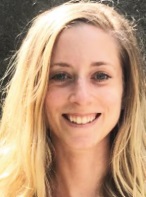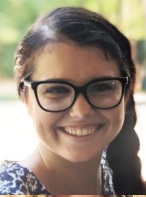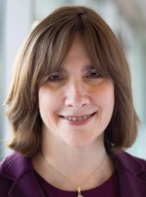REAL TALK : VACCINES DON'T CAUSE AUTISM OR DD
Studies do not support a relationship between the Measles, Mumps, Rubella (MMR) Vaccine and autism or Thimerosal and autism. Please see below for some specific studies.
- Dales L, et al. JAMA 2001;285:1183-85 doi.org/10.1001/jama.285.9.1183
- Kaye JA, et al. Brit Med J 2001;322:460-3 doi.org/10.1136/bmj.322.7284.460
- Madsen KM, et al. N Engl J Med 2002;347:1477-82 nejm.org/doi/full/10.1056/nejmoa021134
- P DeStefano R, et al. Pediatrics 2004;113:259-66 publications.aap.org/pediatrics/article/113/2/259/66877/Age-at-First-Measles- Mumps-Rubella-Vaccination-in
- Farrington CP, et al. Vaccine 2001;19:3632-5 pubmed.ncbi.nlm.nih.gov/11395196
- Fombonne E, et al. Pediatrics 2001;108:e58 publications.aap.org/pediatrics/article/108/4/e58/67007/No-Evidence-for-A-New- Variant-of-Measles-Mumps
- Taylor, B, et al. British Med J 2002;324:393-6 bmj.com/content/324/7334/393
vaccine side effects. All the data strongly supports that there's tremendous benefit in getting the vaccine and very little risk.
Moderator: So, the COVID-19 vaccine is 91% effective. What happens to the 9% who get the vaccine and still get a COVID-19 infection?
Dr. Shulman: The ones who were vaccinated and got COVID-19 anyway had a milder illness than those who had not been vaccinated. People who were unvaccinated and got sick were much more likely to have severe illness, go into the hospital, or have a bad outcome.
Moderator: Some adults felt sick or had some of the side effects when they got the vaccine. Parents want to know: Will their children have those same side effects?
Dr. Shulman: The most common side effect is pain in the arm, and that might be for a couple of days. There might be some small amount of swelling there, possibly low-grade fever, and a couple of children got higher fevers, chills, tiredness, and headaches lasting a couple of days. More with the second vaccine than the first. There were no more serious side effects for this group of 4,600 children in the studies.
Moderator: How many children were in the COVID-19 vaccine trial? Are 4,600 children enough to be able to understand side effects, such as myocarditis?
Dr. Shulman: It's an emergency measure in a pandemic and it takes six months to get the full FDA approval. 4,600 is not an unusual size. We know everybody would feel better if there were millions of children who had been in a study. What is clear from the trial is that the risks from getting COVID-19 are significantly greater than the risks from the vaccine.
Moderator: What's the difference between the flu vaccine and the COVID-19 vaccine?
Dr. Shulman: They are vaccines for protection from different infectious agents, different viruses.
The COVID-19 vaccine uses the MRNA technology and is the first FDA approved vaccine using that technology. But both are protective devices against infections that rely on the body's immune system.
Moderator: Would you like to add anything else?
Dr. Shulman: I want to say one final thing. As doctors, we often don't talk about our own families; however, I'm a mom, and one of my own kids has significant health issues. I rushed to get a COVID19 vaccine for my child with health issues the minute she was eligible. I was so worried that she would get sick from a COVID-19 infection and have a poor outcome. I'm a mom first, and I want to end on that note. •
Dr. Shulman's Let's Talk webinar was made possible because of the VaxFactsDDNY project, hosted by the Rose F. Kennedy University Center for Excellence in Developmental Disabilities (RFK UCEDD) and funded by the New York State Developmental Disabilities Planning Council (NYS DDPC).
ABOUT THE AUTHORS:

Rachel Passmore, MPH received her Master of Public Health from Columbia University's Mailman School of Public Health. She is a Project Manager at Albert Einstein College of Medicine, overseeing the day-to-day work of two projects: the CYSHCN Project and VaxFactsDDNY. Ms. Passmore is a former Fulbright-Nehru English Teaching Assistant (Delhi, India) and United States Peace Corps Volunteer (Grenada, West Indies).

Andrea Deisher RN, BSN, MPH received her Master of Public Health from Columbia University's Mailman School of Public Health and Bachelor of Science in Nursing from Liberty University. She is a public health nurse and Senior Research Coordinator at the Rose F. Kennedy Center Children's Evaluation and Rehabilitation Center at the Children's Hospital at Montefiore. Her clinical and research interests include increasing the evidence base for interventions for children with autism and healthcare disparities in autism diagnosis and treatment.

Lisa Shulman, MD received her MD from University of Pennsylvania School of Medicine. She completed her Pediatric Residency at the Mount Sinai Medical Center of New York. She is board certified in Pediatrics, Developmental and Behavioral Pediatrics and Neurodevelopment. Dr. Shulman is the interim Director of RFK CERC where she also serves as the Director of autism Services and as an Attending Physician.
Citations
- Boehmer, T. K., L. Kompaniyets, A. M. Lavery, J. Hsu, J. Y. Ko, H. Yusuf, S. D. Romano, A. V. Gundlapalli, M. E. Oster, and A. M. Harris. 2021. "Association Between COVID-19 and Myocarditis Using Hospital-Based Administrative Data - United States, March 2020-January 2021." MMWR Morb Mortal Wkly Rep 70 (35):1228-1232. doi: 10.15585/mmwr.mm7035e5.
- Bonsu, N. E. M., S. S. Mire, L. C. Sahni, L. N. Berry, L. R. Dowell, C. G. Minard, R. M. Cunningham, J. A. Boom, R. G. Voigt, and R. P. Goin-Kochel. 2021. "Understanding Vaccine Hesitancy Among Parents of Children With autism Spectrum Disorder and Parents of Children With Non-autism Developmental Delays." J Child Neurol 36 (10):911-918. doi: 10.1177/08830738211000505.
- Karpur, A., V. Vasudevan, A. Shih, and T. Frazier. 2021. "Brief Report: Impact of COVID-19 in Individuals with autism Spectrum Disorders: Analysis of a National Private Claims Insurance Database." J autism Dev Disord:1-7. doi: 10.1007/s10803-021-05100-x.
- Loftus, Peter. 2021. "Covid-19 Vaccines and Myocarditis Link Probed by Researchers." The Wall Street Journal, November 7, 2021. wsj.com/articles/researchers-probe-link-between-covid-19-vac- cines-and-myocarditis-11636290002.
- Szilagyi, P. G., M. D. Shah, J. R. Delgado, K. Thomas, N. Vizueta, Y. Cui, S. Vangala, R. Shetgiri, and A. Kapteyn. 2021. "Parents' Intentions and Perceptions About COVID-19 Vaccination for Their Children: Results From a National Survey." Pediatrics 148 (4). doi: 10.1542/peds.2021-052335.
- Tinker, S. C., M. E. Cogswell, G. Peacock, and A. B. Ryerson. 2021. "Important Considerations for COVID-19 Vaccination of Children With Developmental Disabilities." Pediatrics 148 (4). doi: 10.1542/peds.2021-053190.